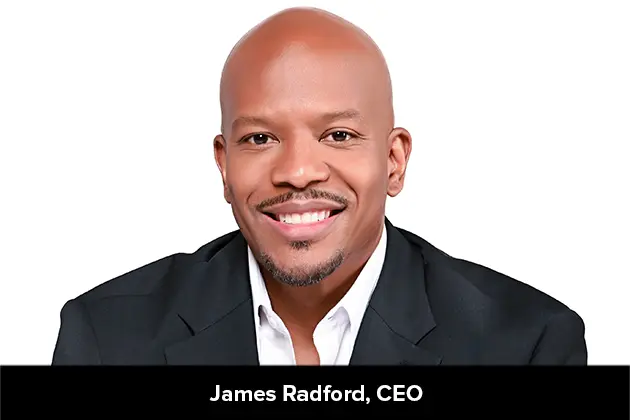CEOs are crucial for the success and longevity of their organizations. They are not just leaders, but also visionaries who guide their companies through the ever-changing business environment. People like James Radford, CEO of Trust Consulting Services demonstrate the importance of CEOs by bringing a wealth of experience and a unique perspective to their positions.
Radford’s diverse backgrounds and experiences, help him make strategic decisions that promote success and innovation within his organization. Especially, his military background and leadership roles in the church, highlight the significance of CEOs in shaping the future of the company and the industry.
As an executive, James also plays a crucial role in shaping corporate culture and values, setting the tone for how employees interact with each other and with customers. By prioritizing transparency, accountability, and ethical behavior, he creates a positive work environment that fosters collaboration and trust.
Furthermore, he says that CEOs have the power to influence public perception of their companies and industries through their actions and statements. By championing social responsibility initiatives, promoting diversity and inclusion, and advocating for sustainable business practices, they can make a positive impact on society as a whole.
James holds the view that balancing the demands of leadership with personal well-being is a cornerstone of an effective CEOship. Leaders recognize the significance of self-care in maintaining resilience and effectiveness, ensuring they can lead their teams with clarity and purpose while nurturing their personal lives.
By fostering a culture of innovation and creativity, Trust Consulting Services is able to stay ahead of the competition, adapt to changing market conditions, and continuously improve its products and services. This culture of innovation also helps to attract and retain top talent, as employees are given the freedom to think outside the box, take risks, and contribute their unique perspectives. This not only leads to increased employee satisfaction and engagement but also results in a more diverse and inclusive workplace where all voices are heard and valued.
The CEO of this organization is of the opinion that an executive should understand the importance of providing the necessary resources, support, and opportunities for growth and development. This may involve implementing training programs, mentorship initiatives, or career advancement opportunities to help individuals reach their full potential. To stay agile in business, CEOs should implement various strategies. Continuous learning is a crucial aspect of this, as they recognize the need to adapt and evolve in a rapidly changing business landscape.
Radford says that it is a basic criterion for CEOs to encourage their teams to embrace agile methodologies, which promote flexibility, collaboration, and iterative problem-solving. They also invest in technology to streamline processes, improve efficiency, and stay ahead of competitors. Open communication is another essential strategy employed by CEOs. They foster an environment where ideas and feedback can be freely shared, ensuring that everyone feels heard and valued. This not only enhances collaboration and teamwork but also allows for the identification and resolution of issues before they escalate.
Another important thing mentioned by James is that diversity promotion is a priority for CEOs, as they understand the value of having a diverse workforce. They actively seek to create an inclusive culture that celebrates and leverages differences, recognizing that diverse perspectives lead to better decision-making and innovation. Experimentation is encouraged by CEOs, as they understand that taking calculated risks is necessary for growth and innovation.
They create a culture that embraces experimentation, allowing for the exploration of new ideas and approaches. This mindset encourages creativity and fosters a culture of continuous improvement. In high-pressure situations, CEOs strategically tackle challenges using data, stakeholder input, and clear communication.
Radford believes that CEOs rely on data-driven insights to inform decision-making, ensuring that choices are based on evidence rather than assumptions. They actively seek input from stakeholders, recognizing the importance of considering different perspectives and involving those affected by the decisions. Clear communication is essential in these situations, he opines, as it helps to manage expectations, build trust, and rally the team toward a common goal.
Staying informed about emerging trends and developments in their industries is a cornerstone of effective leadership said James Radford. CEOs utilize diverse channels such as continuous learning, networking, advisory boards, and customer feedback to incorporate cutting-edge knowledge into their company’s strategies.
Ultimately, the lasting impact of a CEO’s leadership extends beyond the confines of the organization. For Radford and leaders like him, the vision is not only about achieving organizational success but also about making meaningful contributions to the broader business community. By guiding their companies toward ambitious goals, CEOs inspire positive change, drive economic growth, and pave the way for a brighter future.
We specialize in delivering state-of-the-art business management consultancy services with customizable techniques to government entities










